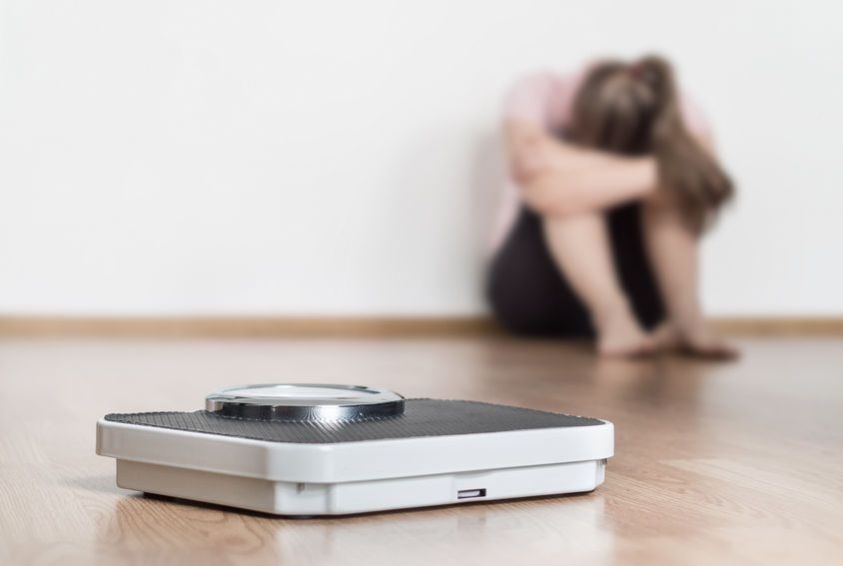 Stress has the potential to cause both weight loss and weight gain, depending on the situation and the specific person affected. At times, stress can cause someone to miss meals or even eat poorly. It can also lead to loss of appetite, in which case it causes weight loss. At the same time, stress can cause emotional eating and poor eating habits, leading to weight gain. This article gives details regarding how stress can affect your weight loss journey.
Stress has the potential to cause both weight loss and weight gain, depending on the situation and the specific person affected. At times, stress can cause someone to miss meals or even eat poorly. It can also lead to loss of appetite, in which case it causes weight loss. At the same time, stress can cause emotional eating and poor eating habits, leading to weight gain. This article gives details regarding how stress can affect your weight loss journey.
The Relationship between Stress and the Hormone Cortisol
Research shows that an increase in the stress hormone cortisol can lead to an increase in weight. Every time you get stressed, your adrenal glands release cortisol and adrenaline.
This leads to a glucose release into the bloodstream. The body does this to give you extra energy to escape risky situations. Upon the reduction of the threat, your adrenaline level reduces, leading to a decrease in blood sugar. It is at this point that cortisol kicks in to replenish your energy.
Since sugar provides your body with the quick energy it desires, sugary foods are usually what you reach out for when stressed. The main disadvantage of doing this is that your body ends up storing sugar, especially after a stressful occasion. This energy is stored in form of abdominal fat. This fat is usually quite hard to shed and is usually related to excessive weight gain.
Stress-Induced Unhealthy Behaviors That May Hinder Your Weight Loss Journey
- Emotional Eating
Increased stress leads to a boost in cortisol, which causes an individual to crave unhealthy foods. Furthermore, the excess nervous energy can make you eat more than you normally do. When stressed, you might find out that snacking provides you temporary relief from stress. This might be act as a temporary fix for your stress but ends up making your weight loss journey difficult.
- Exercising Less
With all the stress you are facing, working out might not be a priority for you. With little to no exercise, weight gain is imminent. Combining this with excessive emotional eating definitely leads to unwanted weight gain.
- Eating More Fast Foods
When you are stressed, you usually do not have the time and energy to prepare a healthy meal for yourself. For this reason, you are likely to drive through a fast-food place to get your food. Fast food usually contains more fat and sugar and their portions are usually bigger. These factors mean that you end up consuming more calories, which equals to excessive weight gain.
- Sleeping Less
Many individuals usually have a hard time sleeping when stressed. If this is you, then you need to note that sleep deprivation leads to slower metabolism. Lack of enough sleep may also reduce the willpower to eat right, leading to unhealthy eating habits.
How to Prevent Stress-Related Weight Changes
- Make Exercise a Priority
Exercise is a major part of weight management and stress reduction. It can assist you to deal with these two issues simultaneously, making it an important method of dealing with stress-related weight gain. Whether it is a simple walk after work or hitting the gym in the morning, incorporating regular exercise into your routine goes a long way in helping with weight loss.
- Eat Healthier Foods
One thing you should note is that you do not really need fats and carbs to feel better when stressed. Studies show that comfort foods like air-popped popcorn are just as likely to boost a negative mood just as junk foods that people love to snack on when stressed.
- Practice Mindful Eating
Paying attention to what you eat without focusing on the distractions can help reduce stress and promote overall weight loss. Studies show that individuals that took part in mindfulness-based stress and nutrition training were more able to control their emotional eating. They also had lower stress levels, meaning less belly fat and thus better weight loss results.
Stress has been linked to unexpected weight gain, meaning that it can hinder your weight loss journey. Stress leads to emotional eating making you eat more than normal. It also prevents you from working out, meaning that you do not burn as many calories as you were used to. Furthermore, stress makes you want to eat more fast foods since you have no time or energy to cook. It is important to prevent weight-related weight changes by practicing mindful eating, consuming healthier foods, and making exercise a major priority even when you do not feel like doing it.

